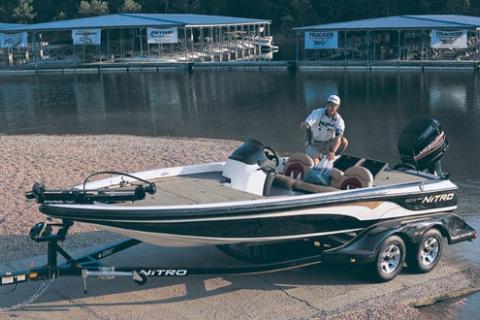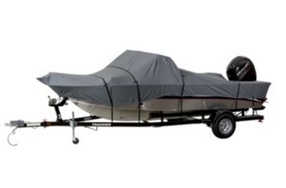
 OK, so it’s not a very sexy subject, but for many of us here in the Northland, it’s the “off-season” or the “hard-water season.”
OK, so it’s not a very sexy subject, but for many of us here in the Northland, it’s the “off-season” or the “hard-water season.”
The boat and trailer are either in storage somewhere or, if we’re lucky, stored in our own garage. It’s a great time to complete some maintenance on our boat trailer to help ensure it will be trouble free. Nothing will destroy a well-planned weekend of fishing faster than a blown wheel bearing.
Unfortunately, I speak from experience.
Every spring, I try to focus a day or two on maintaining my boat’s trailer. I’m probably a bit pickier than most when it comes to this subject, as I was a part-time Motor Sergeant in my past life. I know that a little preventive maintenance goes a long way. Preventive maintenance isn’t a guarantee that everything for your trip will go smoothly, but it will certainly put the odds in your favor.
Here are a few of the things that I do every season to keep my boat trailer in good working condition:
1. I have a dual-axle trailer, and once every other year, I clean and repack the wheel bearings. I would clean and repack the bearings every year if I didn’t have a means of greasing the bearings throughout the year. The spindle at the tip of each axle on my trailer has a grease zerk. This zerk always gets a few squirts of grease prior to each road trip. It helps ensure that new grease will lubricate the wheel bearings as I’m going down the road.
2. Inspect and rotate the tires to maximize the tread life. Look for any uneven wear or cupping of the tread on the tires. Also, look for any bulging on the sidewall, which can occur from rubbing too many curbs. If you do see any unusual tread wear or bulging, be sure to check with your local automotive shop that specializes in wheel alignments. They should be able to help correct the problem for you.
3. Check the trailer bunk or rollers, as these are the support systems for the boat and are very often overlooked. The trailer’s bunk, in most cases, is made of treated wood and indoor/outdoor carpet. These bunks don’t last forever and generally need to be replaced every 5 to 6 years before they begin to rot and get “spongy.” If you have rollers, check them for excessive wear and replace or adjust them as necessary. Your boat will spend the vast majority of its life on this support system, and it’s important for the weight of your boat to be evenly distributed so as to not damage the hull stringer system of your boat.
4. Inspect the electrical connector between the tow vehicle and the trailer for corrosion, and clean as necessary. Check that the signal and clearance lighting on the trailer are working properly.
5. With a flashlight, check the integrity of the trailers welds. I own a Nitro, and it rides on a Trail Star Trailer. These trailers, unlike many of competitors, are well built of tubular steel construction and very rigid. Although I’ve never had a problem, I still check each of the welds once a year. If you have a trailer that isn’t tubular steel construction, you may want to spend a little extra time here, especially if the trailer is 10 years old or more. Also, inspect the leaf spring and/or coil springs on the trailer for cracks or breaks.
6. If your trailer has surge brakes, check the brake fluid and the brake pads. The brake pads are often overlooked and taken for granted, but are crucial for safe operation. Anyone who’s ever had a heavy trailer push them around on the road or had to make a quick stop from highway speeds knows what I mean. It can be a little scary!
7. Check the winch and the boat tie downs. Inspect the tie downs and winch strap so that there are no major abrasions that may create a safety concern. Inspect the winch and winch bracket, making sure that the bolts are securely fastened. Remember, in the event of an immediate stop, like a collision, these straps are the very things that will help keep the boat out of the back seat of your truck.
A little preventive maintenance can go a long way. By incorporating a few of the items that I’ve mentioned into your off-season schedule, you’ll be increasing your odds of spending more time on the water and less time in the shop.
by Dan Bonneson
- 13770 views

